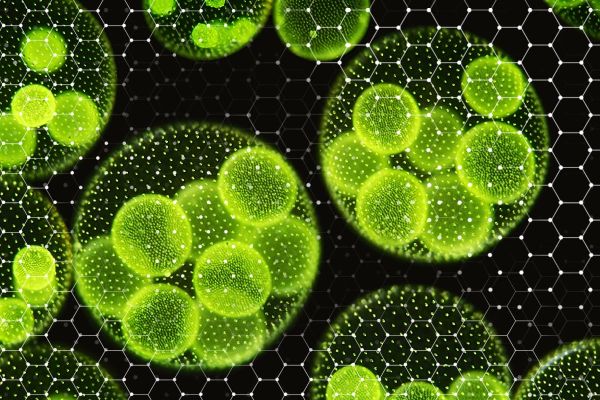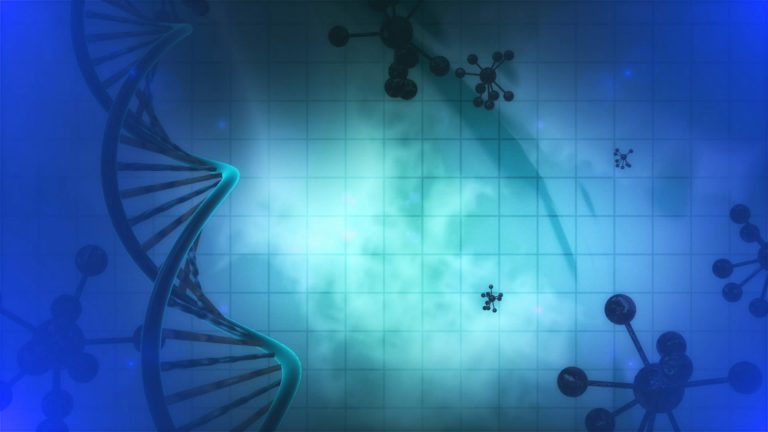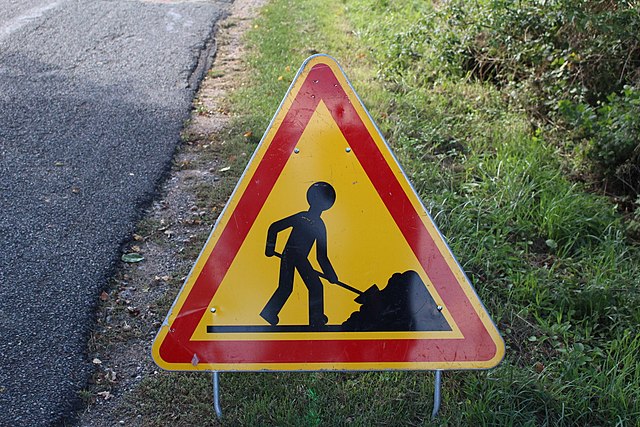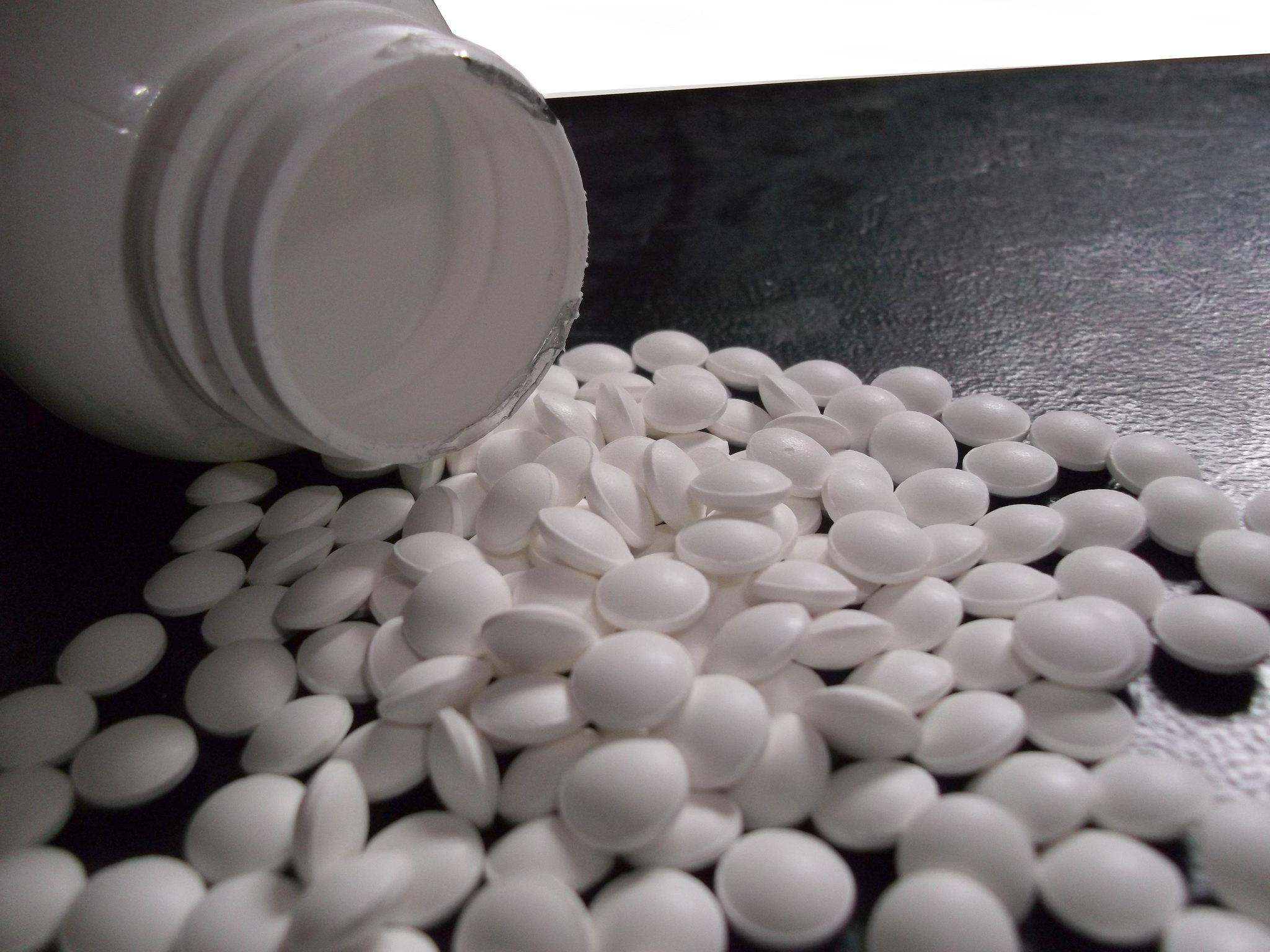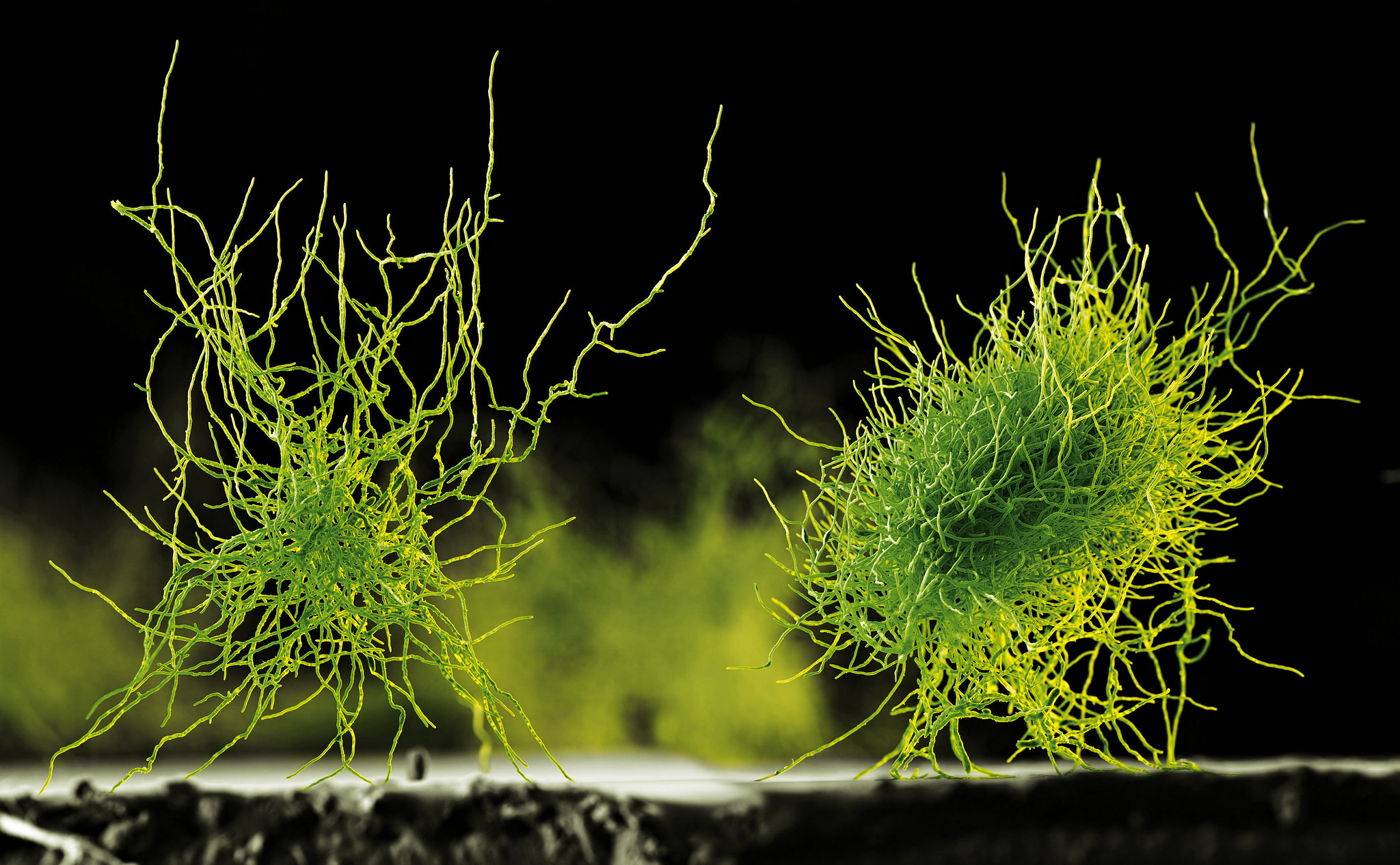News
Novonesis, a new Danish industrial giant promoting “biosolutions”?
In January 2024, two Danish industrial giants of the microorganisms merged and Novonesis was born. This company sells “biosolutions” for all industrial and agricultural areas. “Bio” for biotechnological… and not biological, as it prefers to emphasize. This company uses microorganisms, often genetically modified, to make them produce enzymes.

A new agri-food industrial giant was born in January 2024 in Denmark: Novonesis1, resulting from the merger of the companies Novozymes2 and Chr. Hansen. This new entity will have an annual turnover currently estimated at 3.7 billion euros3. Its commercial playground? Products promoted as “biosolutions”… with the motto “the time for biological solutions is now”.
When microorganisms become “biosolutions”
By “biosolutions”, Novonesis refers to the use of microorganisms for the production of various molecules. The biosolution is therefore sold as an alternative to synthetic chemistry. “Bio”, quite simply because this “chemistry” uses living organisms to produce the molecules that synthetic chemistry constructed from scratch.
In a short video, Novonesis explains that “tiny and powerful microorganisms are everywhere, transforming our world with their enzymes”. Novonesis intends to study them, to “improve” them, notably through genetic modifications, to use the potential of “these microscopic transformers”. Thanks to them, the company claims to solve everyday problems and, beyond that, “transform the way we produce and consume”.
Several “biosolutions” are then highlighted. Novonesis claims that 80% of wasted yogurt is due to a short shelf life. To increase this duration by seven days, the company discovered “the ability of the good bacteria to absorb a specific nutrient in fermented milk that yeast and mold need to grow. […] By reducing the levels of manganese in the food product, the good bacteria effectively delay spoilage and thereby help improve quality and shelf life”4.
Similarly, Novonesis claims to increase the durability of clothing by using enzymes produced by a bacteria that lives on the surface of algae. This enzyme, manufactured in their laboratory, is then integrated into detergents… so that it destroys “the sticky and odorous layer on our clothes”. The list of everything that microorganisms can produce in fermenters is very long.
If the production mode of synthetic chemistry and that of GM microorganisms (MGM) are different, the purpose is the same: to manufacture medicines (prebiotics, probiotics), fertilizers, pesticides, food additives (vitamins, enzymes ), agrofuels (which they call “biofuels” or “biodiesel”) and many industrial products, such as solvents, detergents, “bioplastics”, etc. In agriculture, “biosolutions” are mainly of two types: the “control” of pathogenic organisms, called biocontrol (including biopesticides, see our article on MicroPep) and stimulants (including “biofertilizers”).
Are biosolutions a “natural preparation of low concern”?
The problem is that these words are catch-alls… However, in the field of “biosolutions”, there are two completely different paths. We have, on the one hand, the natural preparation of low concern (french expression for “préparation naturelle peu préoccupante”, PNPP), free of rights, reproducible on the farm (nettle or comfrey liquid manures, etc.) and, on the other, the molecules developed by industry, patented and whose recipes are carefully guarded. The professional Union of companies working in the field of biostimulant (Afaïa in French), whose current general delegate is a former Monsanto breeder, emphasizes that “for fertilizers made from natural substances […], these procedures must be simplified […] to open access more easily to innovative products”.
Does this union defend positions close to those of Aspro-PNPP, which is fighting for the recognition of the PNPP? Not at all. Afaïa finds regrettable the confusion between biostimulant and PNPP and, unlike Aspro-PNPP, claims that biostimulants can be microorganisms, natural substances or of natural origin (humic acids, amino acids, algae extracts or plants) or synthetic substances. Aspro-PNPP and the Confédération Paysanne (peasants French Union) succeeded in obtaining specific legislation for PNPP. PNPP “are a category of plant protection products whose status has continued to evolve since their creation and […] defined by article L.253-1 of the rural code, modified by article key 50 of the law for the future of agriculture”5.
PNPP are made up of two categories. First, basic substances, that is to say substances not initially developed for use in plant protection but which may have an interest for it (foodstuffs, etc.) which have no negative impact on human health or the environment. These substances are a category of plant protection products distinct from phytosanitary products. Second, natural substances for biostimulant use (in French SNUB) (fertilizing materials): at present, the list only includes medicinal plants sold freely, such as nettle. Afaïa has fought and continues to fight against separate regulations and prefers to put everything in the same bag, in order to consciously organize confusion. Moreover, Afaïa affirms that what is reproducible on the farm, what is “derived from ancestral empirical techniques and [the preparations which] are obtained by a process accessible to all” is a distortion of competition in the face of what is is “from industrial and controlled manufacturing, not reproducible for an individual”. The use of PNPP implies an evolution towards agroecology, while “industrial biocontrol” makes it possible to not change the mode of production and to go on with the current agricultural model.
This dichotomy has been found since the beginning of modern biotechnology which, to establish its authority and legitimacy, conflates it with “ancestral biotechnologies”… but claims that the difference is in the control of the living, in its understanding and also its purity. Explanation: humans have developed many culinary practices based on fermentation. Beer, wine, bread, cheese, yogurt, kefir, kombucha, tempeh, etc. are foods resulting from the transformation of ingredients by microorganisms (yeasts, bacteria, etc.). Companies such as Novonesis, when talking about modern biotechnologies and biosolutions, want to walk in the footsteps of these ancestral techniques. They use the properties of life to produce molecules and enzymes. But there is a clear epistemological break between these two practices: in one case we use the entire living organism, in the other, we isolate the active agents and operate in an artificial environment.
Links between chemical, oil and microorganism companies
Among competitors, we also find such links. Thus, Mike Herr is both a director at EOG Ressources and at Kerry Group, an Irish multinational in the agri-food sector (dairy products, flavor enhancers, food additives, etc.), whose subsidiary Kerry Bioscience develops GMMs and which recovered the “lactase” part of Novozyme and Chr. Hansen. (see the second box). However, EOG Resources specializes in the exploration and production of natural gas and crude oil.
GMO biosolutions soon to be deregulated?
Biosolutions can be produced from genetically modified microorganisms. As they are promoted as making it possible to reduce synthetic pesticides, greenhouse gas emissions, improve yields, etc. it is logical that these biosolutions are encouraged. However, for these companies, current regulations on GMOs are an obstacle to the development of sustainable biosolutions.
The merger of two leading Danish companies in the field of microorganisms is far from trivial in the current context of the proposed deregulation of GMOs. Indeed, Novozymes or Chr. Hansen have been developing GMMs for several years. From 2022, certain companies have requested that the deregulation envisaged for GMO/NTG plants also be declined for micro-organisms. Letters written by several lobbies, such as EuropaBio, the Association of Manufacturers and Formulators of Enzymatic Products (Amfep) or the EU Association of Specialty Feed Ingredients and their Mixtures (Fefana, Fédération Européenne des Fabricants d’Adjuvants pour la Nutrition Animal,) and, more recently, Euroseeds stipulate that “knowledge about micro-organisms [be] recognized and taken into consideration when policy actions for NTG-derived plants are developed”.
However, Novozymes and DSM-Firmenic are companies active in these lobbying organizations, since they are members of EuropaBio, Fefana and Amfep. Likewise, Chr. Hansen and Kerry Group are members of Fefana and Amfep.
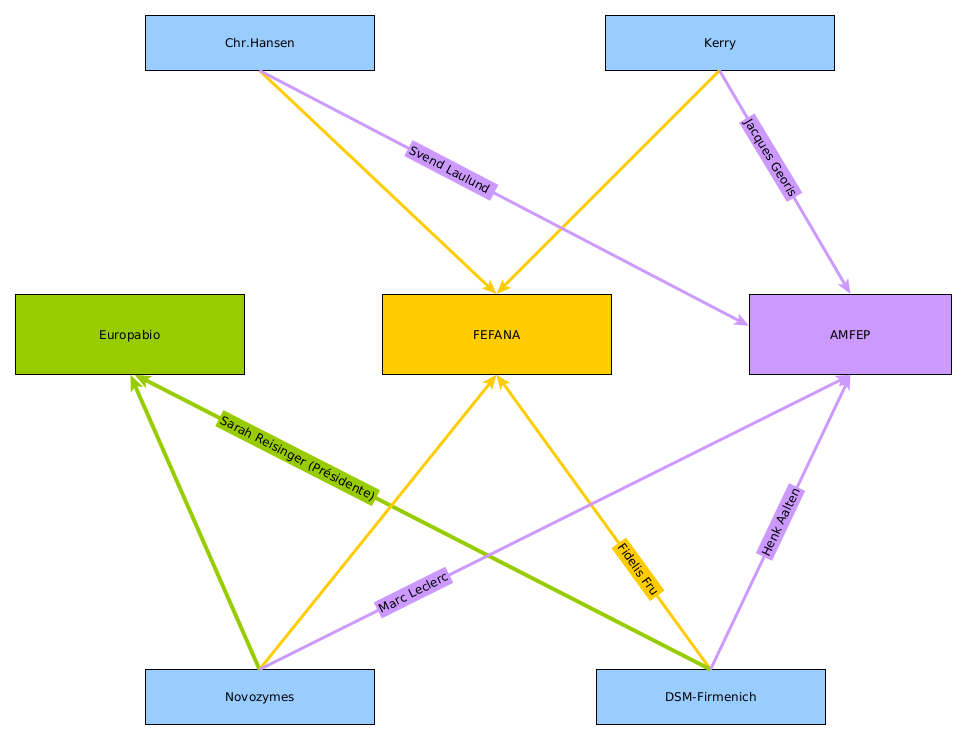
From 2020, in an article published in the Danish newspaper Altinget6, several Novozymes managers explicitly called for deregulation of all GMOs. “Current GMO regulations in the EU are an obstacle to progress”, writes the CEO and director of research of Novozymes. “The challenge in the EU is regulation of GMOs based on the logic of an era when technical breakthroughs were several years apart”, adds the executive vice president and director of research at Novozymes.
These officials then thank the Danish government which, they specify, “wishes to take the lead in the green transition. This is good for Denmark’s international role, for growth through jobs and exports, while reducing the impact on nature and resources”. For them, GMOs, and in particular GMM, are excellent tools for a carbon-free, sustainable and ecological world. However, current regulations prevent these companies from offering “sustainable solutions” because, they insist, “the major challenges in terms of agriculture, food, resource consumption, pollution and CO2 emissions do not can only be solved using new technologies“. And to continue: Crispr and “genome editing techniques”, used in microorganisms, allow us “to optimize culture conditions, reduce stress, gradually eliminate chemicals and promote health“.
The European Commission accepts the merger in its almost entirety
This new economic entity, Novonesis, has been approved by the European Union’s DG for Competition in 2023. The only thing that the European Commission noted was the concentration in the production of lactase. She writes in her opinion published in December 2023: “The Commission’s investigation showed that the merger, as initially notified, would have reduced competition in the market for the manufacture of one specific enzyme, lactase, using genetic modification technology.[…] The Commission also found that post-merger there would not be sufficient potential competitors to exert sufficient competitive pressure on the merged entity”. Thus, to resolve the competition problems raised by the Commission, the parties proposed to sell their activities:
The “lactase” sector was sold to Kerry Biosience, a subsidiary of Kerry Group. However, among the companies present on the lactase market, we find DSM (recently DSM-Firmenich). And Novozymes established “an economic alliance” in 2021. As for the rest, notably Research & Development, the Commission writes: “after an in-depth examination and benchmarking, the Commission has established that the competitors of the merged entity have a equivalent capacity to invest in R&D and that the parties do not have specific R&D capabilities that their rivals could not otherwise access“.
A speech heard over and over since the ruling of the Court of Justice of the European Union, in July 2018, when it affirmed that GMOs derived from techniques with no history of safe use must be regulated according to the principles of Directive 2001/18. A speech which seeks to prepare minds for a possible extension of the deregulation of GMO plants to micro-organisms as already formulated by the European Parliament on February 7, 2024. A project which move forward when Denmark takes over the Presidency of the EU on July 1, 2025…
- This name is made up of novo (new) and nesis (birth). ↩︎
- Novozymes is already part of a business group, the Novo-family, which includes Novo Nordisk (medicine) and the Novo Nordisk Foundation. Novonesis is therefore a de facto member of this group. ↩︎
- Flora Southey, « Novonesis: Chr Hansen and Novozymes merge to form €3.7bn ‘biosolutions’ major», Food Navigator Europe, 2 February 2024. ↩︎
- Novonesis, « The battle on food waste: Good vs bad microbes », 12 March 2024. ↩︎
- Ecophyto-pro, « Les préparations naturelles peu préoccupantes (PNPP) : statut et approbation », October 2023. ↩︎
- Thomas Videbæk et Claus Crone Fuglsang, « Novozymes: Regulering af GMO er baseret på forældet logik », Altinget, 12 June 2020. ↩︎







